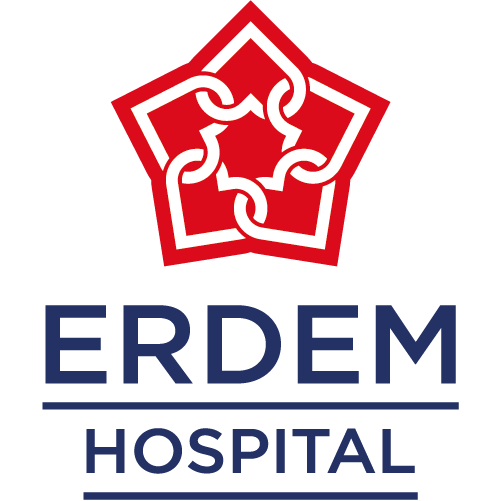Ophthalmology is a specialized branch of medicine that focuses on diagnosing, treating, and preventing eye diseases and vision disorders. It involves the study of the eye’s anterior, central, and posterior segments and employs advanced medical and surgical techniques for eye care.
With rapid advancements in medical technology, ophthalmic conditions have become more prevalent, necessitating precise diagnostic tools and innovative treatments. At Erdem Hospital, our Ophthalmology Department is dedicated to providing world-class eye care with cutting-edge medical devices, expert physicians, and highly skilled personnel.
Our Approach to Eye Care at Erdem Hospital
1. Advanced Diagnostic and Therapeutic Equipment
To ensure precise diagnosis and optimal treatment, we utilize state-of-the-art diagnostic and therapeutic tools, including:
- Auto-refractometer – Computerized evaluation of vision and refractive errors.
- Computed Visual Field Test – Detects visual field defects related to glaucoma and other neurological conditions.
- Fundus Fluorescein Angiography (FFA) – Advanced imaging for retinal vascular conditions.
- Biomicroscopy – High-magnification examination of anterior eye structures.
- Non-contact Tonometer (Air-puff Test) – Measures intraocular pressure (IOP) for glaucoma screening.
- Computed Phoropter – Automated eye examination system for refractive error assessment.
- Applanation Tonometry – Gold standard for measuring intraocular pressure.
- Indirect Ophthalmoscopy – Examination of the retina and optic nerve.
- Keratometry – Measures corneal curvature for contact lens fitting and surgical planning.
- Pachymetry – Measures corneal thickness, crucial for glaucoma risk assessment.
- Biometry – Calculates intraocular lens power for cataract surgery.
- Optical Coherence Tomography (OCT) – High-resolution imaging for retinal and macular diseases.
- Argon Laser Therapy – Used for retinal treatments and glaucoma management.
2. Comprehensive Ophthalmologic Examinations
At Erdem Hospital, a detailed ophthalmologic examination is conducted to assess eye health, identify disorders, and prescribe suitable treatments. Our physicians specialize in treating both pediatric and adult patients and are available six days a week.
The examination process includes:
- Vision Acuity Testing – Measures clarity of vision.
- Refraction Test – Determines the need for eyeglasses or contact lenses.
- Slit-lamp Examination – Inspects eye structures under high magnification.
- Retinal Examination – Evaluates the retina and optic nerve for diseases.
- Eye Pressure Measurement – Essential for glaucoma screening.
Following the assessment, our specialists recommend appropriate eyeglasses, contact lenses, or medical treatments tailored to the patient’s specific needs.
Common Ophthalmologic Disorders Treated at Erdem Hospital
Our clinic specializes in diagnosing and treating a wide range of eye conditions, including:
1. Cataracts & Phaco Surgery
- Cataracts cause clouding of the eye’s lens, leading to blurred vision.
- We perform phacoemulsification (phaco) surgery, a suture-free, minimally invasive cataract removal technique, ensuring quick recovery and improved vision.
2. Refractive Errors (Myopia, Hyperopia, Astigmatism, Presbyopia)
- Myopia (Nearsightedness): Difficulty seeing distant objects.
- Hyperopia (Farsightedness): Difficulty seeing close objects.
- Astigmatism: Blurred or distorted vision due to irregular corneal shape.
- Presbyopia: Age-related inability to focus on near objects.
- Treatment options: Eyeglasses, contact lenses, and laser refractive surgery (LASIK, PRK).
3. Glaucoma (Eye Tension Disease)
- A silent, progressive disease caused by increased intraocular pressure (IOP) damaging the optic nerve.
- Treatment: Medications, laser therapy, or surgery to reduce eye pressure and prevent vision loss.
4. Diplopia (Double Vision)
- Can result from neurological disorders, muscular imbalances, or trauma.
- Treatment: Corrective lenses, vision therapy, or surgical intervention.
5. Lacrimal Duct Disorders (Blocked Tear Ducts)
- Causes excessive tearing, infections, and eye irritation.
- Treatment: Medications, tear duct probing, or surgical correction.
6. Diabetic Retinopathy
- A complication of diabetes, causing retinal blood vessel damage.
- Treatment: Laser therapy, anti-VEGF injections, or retinal surgery.
7. Retinal Diseases (Macular Degeneration, Retinal Detachment)
- Macular Degeneration: Age-related central vision loss.
- Retinal Detachment: A medical emergency requiring immediate surgical intervention.
8. Hypertension-Related Ocular Disorders
- Chronic hypertension can lead to hypertensive retinopathy, damaging retinal blood vessels.
- Treatment: Blood pressure control and retinal laser therapy if needed.
9. Amblyopia (Lazy Eye)
- Affects children, leading to vision development issues.
- Treatment: Patch therapy, vision exercises, or corrective lenses.
10. Color Blindness
- Inherited or acquired inability to distinguish colors.
- No cure, but specialized lenses can enhance color perception.
Frequently Asked Questions (FAQs) in Ophthalmology
How often should I have an eye exam?
- Adults: Every 1-2 years.
- Children: At 6 months, 3 years, and before starting school.
- High-risk patients (diabetes, hypertension, glaucoma family history): Annually.
What are the symptoms of serious eye conditions?
- Sudden vision loss or blurriness.
- Flashes of light or floaters.
- Severe eye pain or redness.
- Halos around lights.
- Distorted vision (wavy lines, dark spots).
Is LASIK surgery safe?
- Yes, LASIK is a safe and effective laser vision correction procedure with a high success rate.
How can I prevent eye diseases?
- Regular eye check-ups.
- Protect eyes from UV rays (sunglasses).
- Maintain good hygiene (contact lens care).
- Control diabetes and hypertension.
Can screen time damage my eyes?
- Excessive screen time can cause digital eye strain (dry eyes, headaches, blurred vision).
- Solution: Follow the 20-20-20 rule (every 20 minutes, look 20 feet away for 20 seconds).
What are the best foods for eye health?
- Leafy greens, fish (omega-3), nuts, citrus fruits, carrots, and eggs promote healthy vision.
Why Choose Erdem Hospital for Eye Care?
- Experienced Ophthalmologists: Board-certified specialists with extensive expertise.
- State-of-the-Art Technology: Cutting-edge diagnostic and surgical equipment.
- Comprehensive Eye Care: From routine exams to complex surgeries.
- Patient-Centered Approach: Personalized treatments ensuring optimal results.
At Erdem Hospital, we are dedicated to preserving and enhancing your vision. Book an appointment today to receive expert eye care from our highly qualified team.
